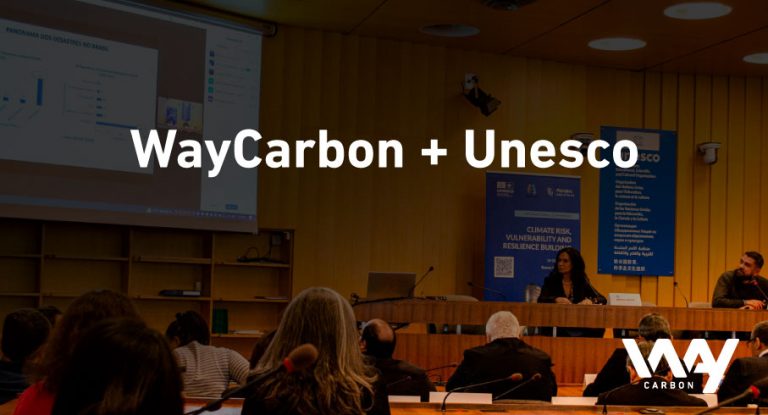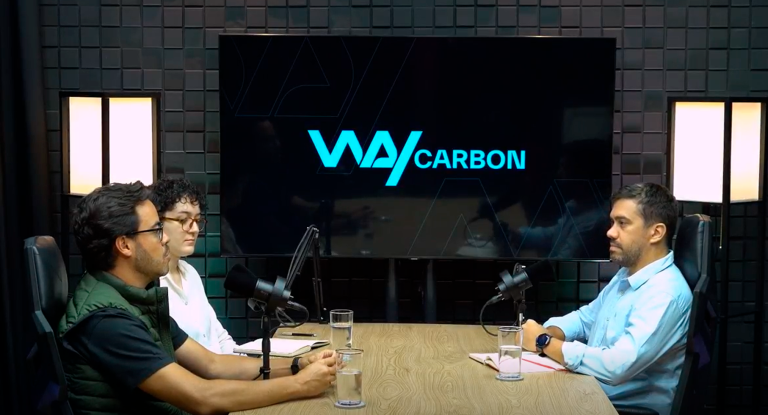WayCarbon attends conference at Unesco

WayCarbon, in partnership with the Centre D’Études Avancées en Education et Développement Durable/CAESE-CAEDD, organised the meeting on “Social Vulnerability, Climate Risk, and the Challenges of Resilience Policies in Brazil,” which took place on April 21st at the United Nations Educational, Scientific and Cultural Organisation (UNESCO Paris) as part of the International Conference on Climate Risk, Vulnerability, and Resilience Building.
The event brought together researchers from over 40 research centres worldwide, including Imperial College London and the University of Southampton (England), Universidad Mayor de San Andrés (Bolivia), and the University of Botswana.
During the meeting, Natália D’Alessandro, Senior Consultant at WayCarbon, provided an overview of climate risks and vulnerabilities in Brazil. The expert contributed with a technical presentation that helped shape reflections on advances in research related to climate risk, vulnerability, and resilience development.
Maria Fernanda Pelizzon Garcia, Climate Change Manager at CETESB, also participated in the event and shared the results of the project developed in collaboration with WayCarbon, which provided training to the municipalities in the Baixada Santista region on climate change adaptation regarding water resources.
In addition to WayCarbon’s presentation, the event also addressed other important topics related to climate change. These included gender and vulnerability, the challenges Brazil faces in advancing sustainability actions at the local level, the protection of human rights and the rights of vulnerable minorities in the context of climate change, and South-South cooperation as a strategy to address global challenges.
Diagnosis, plans, and capacity building for governments
WayCarbon has already worked in more than 30 cities and states in Brazil, contributing to the development of diagnoses, plans, and capacity building programmes. In her speech, Natalia shared with the international community the climate risk and vulnerability assessment tool developed and applied by WayCarbon, called MOVE, as well as methodologies used by the company in the development of action plans with subnational governments.
What is needed for effective climate planning?
It is important to highlight that effective climate planning requires a local diagnosis, followed by the development of goals, objectives, and actions, a multi-stakeholder communication and engagement strategy, as well as other monitoring and implementation elements.
Climate action plans become opportunities to create an internal and external reference, both for the government and the different sectors and regions. They are also a basis for facilitating the allocation of resources for priority projects and external funding, as well as a way to consolidate and strengthen local climate governance.
During the climate planning process, the involvement of different stakeholders and the establishment of a joint effort are essential since the agenda depends on many sectors. In this context, it is important to ensure synergy with ongoing plans and programs and alignment with those that will emerge so that they incorporate the climate lens.
 EN
EN  ES
ES PT
PT





